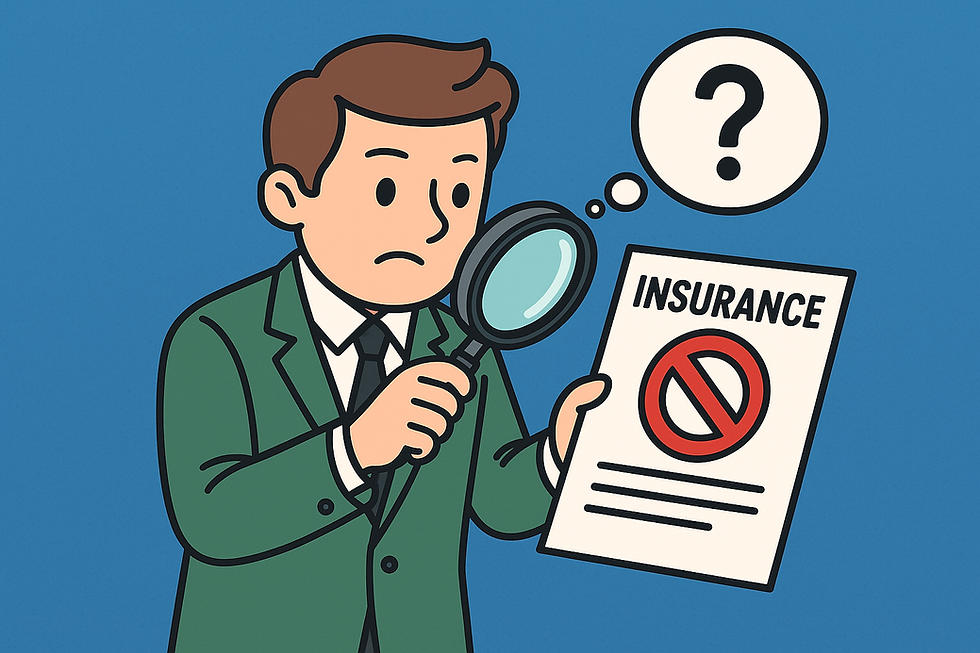How to Check if You Already Have Credit Shortfall Insurance
- businesssolutionsn2
- Sep 23, 2025
- 2 min read
Before you panic — you may already be covered.

So, you’ve read about Credit Shortfall Insurance and understand how it protects you from paying the difference between your car’s Retail Value and your outstanding finance. Now you’re wondering: Do I already have this insurance? Good question — and here’s how to find out.
Step 1: Check Your Vehicle Finance Contract
When you financed your vehicle, you may have been offered Credit Shortfall Insurance as part of the deal.
Here’s what to look for:
Go through your finance documents from the dealership or bank.
Look for terms like "Shortfall Cover," "Top-Up Insurance," or "Credit Protection".
The insurance might have been bundled into your finance deal — especially if you financed through a dealership.
Tip: It may be listed in your loan initiation documents or in a separate insurance policy attachment.
Step 2: Call Your Vehicle Insurer
If your car is comprehensively insured through an insurer they might have offered Credit Shortfall as an optional add-on.
Call your insurer and ask:
Do I have Credit Shortfall Insurance on my policy?
If yes: Ask for the policy document and what is covered (some policies exclude residual amounts or excess).
If not: Ask if you can add it now — in many cases, you can add Credit Shortfall cover even after you’ve already financed the car.
Step 3: Speak to Your Finance Provider or Broker
If your car was financed through a bank or via a third-party broker, they may have arranged the insurance on your behalf.
Contact the bank’s Vehicle Asset Finance department.
Provide your account or agreement number.
Ask:
"Was Credit Shortfall Insurance included in my finance package, and if so, who underwrites it?"
Step 4: Review Your Monthly Statements
In some cases, the premium for Credit Shortfall Insurance may be:
Deducted monthly as part of your car loan repayment
Itemised as a separate debit order by an insurance provider
Look through your bank statements for:
Insurance-related deductions
Company names you don’t recognise — a quick Google search can reveal if they’re shortfall insurers
Still Unsure? Here’s What to Do Next:
Ask your dealer or financial advisor — they’re required to disclose all insurance sold at the time of purchase.
Review your emails or printed documents — especially the policy schedule or add-ons sheet.
Get in touch with us — if we assisted with your finance or insurance, we’ll help you find out exactly what you’re covered for.
What If You Don’t Have It?
If you’ve confirmed that you don’t have Credit Shortfall Insurance, you may still be able to:
Take it out as a standalone policy
Add it to your existing comprehensive cover
Get a tailored package from a provider who specialises in vehicle protection products
It’s a small monthly premium that could save you from tens of thousands of rands in the event of theft or a write-off.
Final Thought:
Don't assume you're covered. Knowing whether or not you have Credit Shortfall Insurance could be the difference between walking away from a written-off car with peace of mind — or being left with debt and no vehicle.




Comments